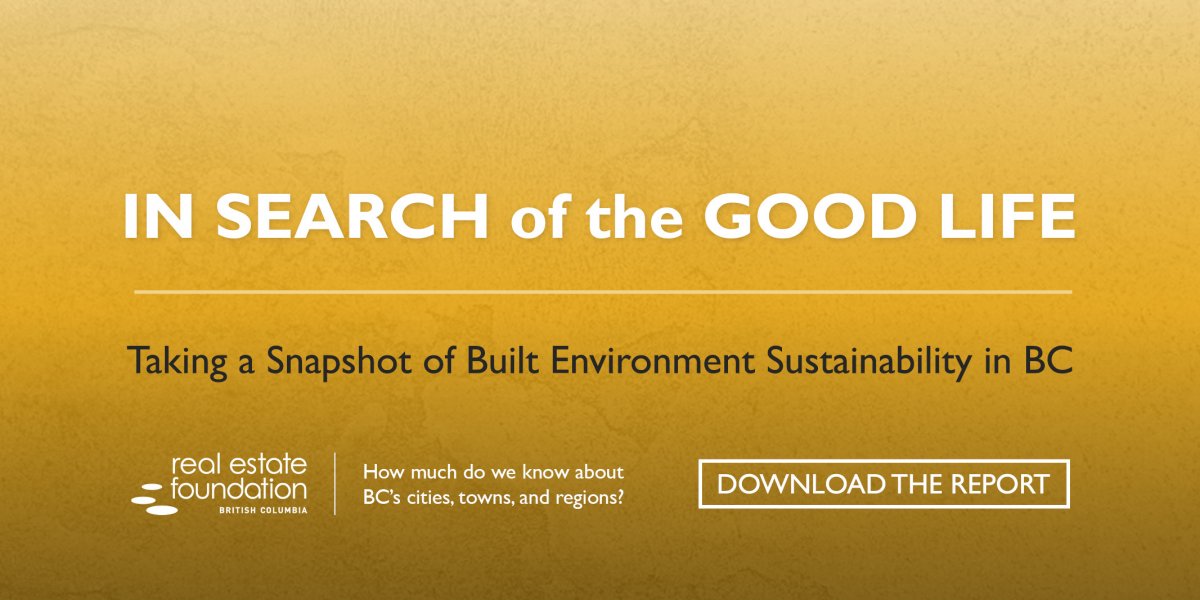
We all want “the good life” – to live in places that are vibrant, green, and offer a high quality of life. As we shape our communities, our built environments (the physical systems our cities, towns, and regions are made of) shape our health, prosperity, and happiness.
REFBC has released In Search of the Good Life: Taking a Snapshot of Built Environment Sustainability in BC.
You can’t change what you can’t measure. That’s the premise behind REFBC’s series of “BC Snapshot” reports, which introduce a framework and indicators for tracking BC progress towards sustainability goals.
In Search of the Good Life, the second in this series, examines the state of BC’s communities and introduces seven ambitious goals, 13 desired impacts, and 10 impact measures to assess the sustainability of BC’s built environments.
A community’s built environment includes housing, buildings, energy, transportation systems, and the land use planning that ties each of these things together. Sustainable built environments balance human needs with the carrying capacity of our environment.
With help from experts, we examined walkability, commute distances, access to nature, housing affordability, building energy efficiency, greenhouse gas emissions, and more. Put together, these impact measures tell a “big picture story” about community health in BC.
Along the way, we found that some of the data planners and policymakers rely on is outdated, incomplete, or difficult to compare. In Search of the Good Life outlines several strategies for improving data gathering, monitoring, and reporting, including:
- Funders, including REFBC, could continue to champion the development of a shared measurement framework for the built environment.
- The Ministry of Municipal Affairs and Housing could invest in strengthening and extending the excellent work already done on supporting indicators for the Community Energy and Emissions Inventory.
- The Ministry of Municipal Affairs and Housing could work with local governments to strengthen and standardize data collection and sharing, particularly with respect to Geographic Information System (GIS) data. The Integrated Cadastral Information Society of BC could be an important partner in this effort.
- All levels of government could pursue “open data” initiatives, ideally using common data standards, to enable third-party access to government data. These initiatives need to be designed to address privacy and other related concerns up-front.
In Search of the Good Life was commissioned by the Real Estate Foundation of BC as part of its BC Snapshots series. The report was prepared by Peter Whitelaw (MODUS), in consultation with built environment experts.
The final report in the BC Snapshots series – on local and sustainable food systems – will be released later this month.
Downloads:
- In Search of the Good Life: Taking a Snapshot of Built Environment Sustainability in BC
- Topline Findings: Built Environment Sustainability
- Media Release
SHARE
